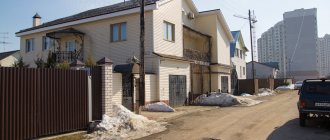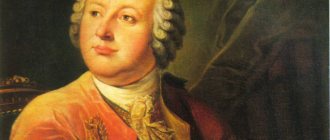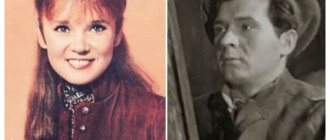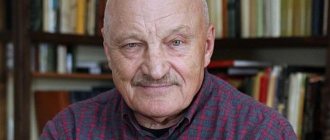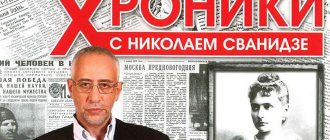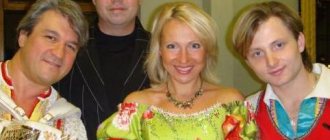Nikolai Zadornov is a talented writer who became famous during the Soviet Union.
During his creative career, he managed to create many articles, stories, essays, as well as a number of cycles in the genres of historical prose and adventure.
The author managed to reflect the layers of history of little-known peoples. He was able to describe in detail the life of those times, the habits and customs of the population, their rituals and lifestyle.
For his work “Father Cupid” Zadornov received a very significant Soviet award - the Stalin Prize. We present to you all the books of Nikolai Pavlovich Zadornov in order.
Development of the Far East
Faraway land
The peace-loving and friendly aborigines of the Amur region, the Samaras and Gilyaks, are forced to constantly defend themselves from their cruel and greedy neighbors - the Chinese and Manchus.
And then a new misfortune is knocking on their doors: the missionaries, by hook or by crook, are trying to impose incomprehensible laws and orders on the Amur people.
The taiga inhabitants would have perished, but, fortunately, the locha - Russian settlers and Cossacks - came to the rescue...
Captain Nevelskoy
A novel about the first Russian expedition to Kamchatka and Amur under the leadership of Captain Nevelsky, who played a huge role in the study of the Far East.
Traveler and scientist, diplomat and naval commander, selfless defender of the interests of the Russian state.
The action of the novel unfolds around him about the complex and dramatic history of the development and settlement of the mouth of the Amur by Russian people.
Ocean War
Nikolai Pavlovich Zadornov, a famous Russian writer, wrote two cycles of historical novels about the exploits of explorers and the exploration of the Far East in the 19th century.
The fate of the second expedition along the Amur, the active development of the Pacific coast of North America, the heroic defense of Kamchatka from the Anglo-French squadron back in 1854 became the basis of the novel “The War of the Ocean,” which chronologically continued the chain of events described in the novel “Captain Nevelsky.”
Ocean War. Volume one
Nikolai Zadornov is famous among readers for his novels in the genre of historical adventures.
The author has created two successful series of books that are dedicated to the Russian exploration of the territories of the Far East in the 19th century, as well as to the wanderings of explorers.
In this novel, the author continues to talk about the series of events that began in the book “Captain Nevelsky”. Readers will learn about the adventures of Chikhachev's group, which went on an expedition along the Amur River and about the fate of the Russian-American company, which headed to the coast of North America.
Ocean War. Volume two
Nikolai Zadornov managed to create amazing novels dedicated to the Russian exploration of the Far East, as well as about the adventures of explorers.
The book “The War of the Ocean” continues to delight readers with the wanderings of the main characters, telling about further events. In it you will learn the history of the second expedition along the Amur, led by N. M. Chikhachev. And also about the development of the Pacific coast of North America by the Russian-American Company...
You will learn about all these exciting travels on the pages of this book...
River of history by Nikolai Zadornov
08/10/2018
| Memory | 7m. 36 c. | 21
In the workshop of sculptor V. Baburov (left) the son of the writer M. Zadornov. First acquaintance with the model of the monument to his father. The photographs were taken in the art basement of the Khabarovsk Cultural Foundation
Fate promised a lot of success to a person with such a “cocky” surname. This is what happened in the long life of the writer Nikolai Pavlovich Zadornov, a significant person in Far Eastern history. He is the author of the famous books “Father Cupid”, “Admiral Nevelskoy”, “Gold Rush”, “Mistress of the Seas”, “Heda” and many others. Perhaps, he devoted his entire work to the theme of the development of the Far East by Russian people; real people, the true names of the creators of history, come to life on the pages of his books, and next to them are images created by his artistic imagination and fantasy. Zadornov lived in the Far East for only 9 years, although he came here very often, traveled with his friend Vs. P. Sysoev, accumulated impressions, collected materials for his books, worked in archives. Recognition and appreciation of creativity will come to the writer later. Not only at home, but also abroad. Here is what is written in the American Literary Encyclopedia: “Zadornov raised layers of the history of peoples hitherto unknown to civilization. He colorfully depicted their life, spoke with deep knowledge about morals, habits and family disputes, misfortunes, everyday troubles, about the craving for the Russian language, Russian rituals and way of life. His novel “Father Cupid,” which became a classic in his homeland, has been translated into many languages. Despite the fact that there is no party theme in his works, the writer was awarded the highest post-war award of the USSR - the Stalin Prize. This is an unprecedented case in Soviet literature." And here is a quote from the British Literary Encyclopedia: “Without N. Zadornov’s historical novels, one cannot have a complete understanding of the development of the history of Russia and Russian literature. Orthodox Marxist critics often made harsh assessments of the novels, considering them apolitical, devoid of a party view of literature. Indeed, the writer’s work does not fit into the Procrustean bed of socialist realism - the fundamental method of literature of the Soviet period. The intense action of his books includes hundreds of historical figures. Next to Nevelsky and Muravyov are the Governor of Kamchatka Zavoiko, the English Admiral Price, Admiral Putyatin, the writer Goncharov, Chancellor Nesselrode, Emperor Nicholas I, the famous navigator Warrior Andreevich Rimsky-Korsakov, the Japanese diplomat Kawaji and others. His works contain history come to life. Three of the writer’s books - “Tsunami”, “Heda”, “Shimoda” - were published in Japan, which testifies to the veracity of the life story of Russian sailors in Japan, which was still closed and dangerous for foreigners, told in these books.” ... In the autumn of 1938, with the last steamship, Zadornov appeared in the young city of Komsomolsk-on-Amur. Having experience in the theater, he was registered on the actor's exchange and invited to the theater of the city of Yunost. He was entrusted with the position of head of the literary department of the theater, and at the same time he plays in plays. On theater posters and programs of those years you can find his name among the performers in Pogodin’s plays “The Man with a Gun,” in the play based on N. Ostrovsky’s novel “How the Steel Was Tempered,” and other productions. Many years later, having become a famous writer, he will come to the city of his youth, meet with the theater, and attend rehearsals of the play based on his famous novel “Cupid the Father.” Zadornov recalled what prompted him to touch upon the topic of developing the eastern outskirts of Russia. “The taiga... seemed untouched, as if people were taking some small part of its wealth. Far Eastern rivers are clean and transparent. The leaves have fallen, and redwood twigs are visible everywhere - on the slopes against the backdrop of the blue sea. The sun was setting into this red thicket. We saw the tracks of animals,” he wrote in his autobiography. An eyewitness to how a modern city grew up on the site of the remote village of Perm, he could not help but turn to the past, to those who were the first to come to the banks of the great river. “I understood that the past was passing away, that soon everything would change and no one would see archery or spear hunting anymore. No one will tell you how the first grain was sown. I tried to see as much as possible." Where on foot, where on skis or on boats, on his own or on instructions from the newspaper “Amur Shocked”, visiting Nanai camps, meeting in Russian villages with descendants of pioneers, Zadornov collected material for the book he planned about the first Russian settlers who came to these places on rafts, with families, to explore vast untouched spaces. The first volume of the novel “Father Cupid” was published in Khabarovsk in the last pre-war issues of the almanac “At the Boundary”. Two books of the novel were published as a separate edition in Dalgiz in 1944, and were republished in Moscow in 1946. After 30 years, the writer again turns to the heroes of his first novel, creating its sequel - “The Gold Rush” (1970). During the war years, N.P. Zadornov, while remaining living in Komsomolsk-on-Amur, worked as a correspondent for the regional radio committee, collaborated with Pacific Star, during which time he wrote 200 essays for the regional newspaper and regional radio. In 1944 he was accepted into the USSR Writers' Union. Together with other writers, Nikolai Pavlovich participated in the liberation campaign of the troops of the Far Eastern fronts in Manchuria. In 1946 he left the Far East, lived in Moscow for two years, and from 1948 until the end of his life in Riga. Here, on his initiative, a section of Russian writers was created in the Latvian Writers' Union, which he headed and supervised, and became the first editor of the literary and journalistic magazine "Parus", where works of Latvian authors were published in Russian. But Zadornov never forgot the Far East, the land that he discovered for himself, for his readers. He still has many friends here. In the 70s, two middle-aged men were walking sedately along the main street of Khabarovsk on warm summer evenings: one was stocky, with a thick, thick beard streaked with gray, the other was a lean, elegant, clean-shaven gentleman. Many Khabarovsk residents easily recognized them and greeted them. They were two friends - writers Vsevolod Petrovich Sysoev and Nikolai Pavlovich Zadornov. Sysoev introduced me to the latter at that time. And shortly before Zadornov’s death (he died in 1992 at the age of 83), I visited the writer in Riga. ... In those years, the Union of Theater Workers of Russia still operated creative laboratories for directors, actors, critics, etc. I also studied in one of them in the “course of eliminating the illiteracy of critics.” It was led by the then head of the Moscow Art Theater, an associate of O. N. Efremova A. M. Smelyansky. About once a year, sometimes twice, we went to Moscow, where he debriefed our “flights,” taught, and mentored. This time the teacher brought us to Riga at the beginning of summer. “We are probably the last ones who are still accepted here; nothing like this will happen again,” said Anatoly Mironovich. “Listen, watch, remember”... He turned out to be right. The creative laboratory of theater critics, headed by Smelyansky, took place in 1989 in two youth theaters in Riga. We watched performances by Russian-speaking and Latvian troupes with a feeling of inevitable change. Everything will happen soon, the theater will be disbanded, its famous director will be left without work. But then, outwardly, everything still remained the same Soviet. Although it was clear that all this was about to end here. The unfriendly, silent residents of Riga almost did not answer questions asked in Russian; the city’s popular newspaper “Atmoda” exposed communists and “Russian occupiers”; Local radio and television, even if they spoke Russian, were unpleasant to listen to. In addition to studying in Smelyansky’s laboratory, in Riga I had an order from the editor of the Far East magazine V. M. Fedorov to negotiate his new manuscript with the writer Nikolai Pavlovich Zadornov who lived here. We arranged a meeting with him over the phone. “Take the tram, you will get to such and such a stop, where I will meet you,” Nikolai Pavlovich told me. In good sunny weather, we walked through the famous Riga park and sat on his favorite bench. After asking me about friends from the Far East, Nikolai Pavlovich suddenly turned to Gogol. It was a brilliant improvisation about the work of the classic. Then we went home to Zadornov. He lived not far from the pompous building of the Central Committee of the Communist Party of Latvia in an old house, in a spacious apartment. The writer apologized: his family is at the dacha and we will have dinner together. We cooked sausages and potatoes and washed them down with coffee. And then they went into his study and talked not about Gogol, but about the owner of the house. Before leaving, I also attended dinner with the Zadornovs. After the feast, we talked again in his office. Nikolai Pavlovich did most of the talking - he was a tireless storyteller, although he was then in his 80s. Returning to the hotel, both times I made small notes of those conversations; I still have them. Now that the writer is no longer alive, it would be appropriate to introduce readers to them. He recalled Komsomolsk, the local theater where he once worked, and talked about how he collected materials for the novel “Cupid the Father.” Starting with this novel, Nikolai Pavlovich and I counted how many books he had written. There were sixteen of them. This is how the author himself “systematized” them. - What I have written can be arranged in several cycles. This is how I imagine them: “Cupid the Father” and “The Gold Rush” are books about Russian peasants; the next cycle is books about Nevelskoy and “The War for the Ocean.” Then you can name the “Japanese” cycle: “Tsunami”, “Shinoda”, “Heda”. Hong Kong Novels. “Mistress of the Seas”, the manuscript “Wind of Fertility” and the idea of a novel about Vladivostok, for which I so far only have the title “Rich Mane”, is a completely different historical cycle. In addition to these books, I have written several works on contemporary topics. On Zadornov’s huge desk lay three thick folders—the manuscript of his new novel, “The Wind of Fertility.” — On May 15, I completed it, all that remains is to retype it. What is this book about? I continue the historical Far Eastern theme. The clash of interests of various states in this region in the middle of the last century and Russia’s access to the Pacific Ocean worried the powerful countries of Western Europe and the United States of America at that time. In defending their interests, they often used military force and sophisticated diplomatic games. My heroes participate in many such events, among whom are Muravyov, Putyatin, Sibirtsev. After all, these events are far from ordinary - the conclusion of the Aigun and Tianjin treaties... This manuscript continues the plot of the events of the previous novel “The Lady of the Seas,” as England was once called. I asked the writer how he works on works that contain actual historical figures, specific events, facts, and where are the characters and situations created by the author’s imagination introduced? - Yes, for me these people are sort of mixed, there are real faces and artistic, collective images. I am not a historian, but a novelist, and such a combination of characters is natural, because in addition to the events of the past, I am interested in human types, characters, and their relationships. For example, love. However, since my books are based on specific historical events, I had to work a lot not only in archives, but also in the largest national libraries in many countries. I tried to go where these events happened. I was perhaps the first Soviet writer to visit Hong Kong. He traveled to Japan and China more than once, and worked in England for a long time. To my question why he has such a strong passion for history, Nikolai Pavlovich replied: “With everything I wrote, I tried to make up for our historical illiteracy.” There are so many layers and ambiguities in Russia’s relations with its eastern neighbors that it is very important to know how everything really was, how our relations developed in reality, what they led and are leading to now. I asked Zadornov about how he was living in Riga. He threw up his hands: you have to live, what can you do? I remembered the Far East fondly and was definitely going to visit Khabarovsk. Somewhat later, when Latvia became an independent state, Zadornov had a hard time in Riga, and more and more often he thought about leaving here. Death ended all doubts. It still seems that N.P. Zadornov will be destined to return to the banks of the Amur. The writer’s son Mikhail Zadornov, a famous satirist, took the initiative to build a monument to Nikolai Pavlovich in Khabarovsk and open a memorial plaque in Komsomolsk. He did what he set out to do. Mikhail Zadornov often flew to Khabarovsk for concerts. And not only - to bow to the father’s monument. It is appropriate to quote here his statements about his father from interviews over the years. It is known that in 1952 N.P. Zadorny was awarded the State Prize for the creation of historical novels (“Cupid the Father,” “The Distant Land,” “To the Ocean”). How did the author himself feel about this? This is what his son recalls: “Despite the laureate awarded to “Sam”, my father never, even during the period of the cult of personality, idolized Stalin. I remember the day when Stalin died. I was sitting on a potty in our Riga apartment and looking out the window - large, right down to the floor. Along the street, outside the window, crying people were walking: Latvians and Russians - all in mourning. Even Latvians cried in Riga. They ordered us to cry - and they cried, together and internationally. I remember mourning Riga and how my older sister cried. She was eleven years old. She didn't understand anything. She cried because the teachers and passers-by were crying... She felt sorry not for Stalin, but for the teachers and passers-by. My father came into our room and said: “Don’t cry, daughter, he didn’t do much good.” My sister was so surprised by my dad’s words that she immediately stopped crying. I thought about it. Naturally, I didn’t understand anything then, but I didn’t want her to cry so much that I began to prove to her in support of my father’s words and give examples why Stalin was not a good uncle. For example, it has been raining in Riga for three months. And they didn’t take me to the sandbox. But Stalin could do anything! Why didn’t he think about us children, who, like me, wanted to go to the sandbox! It was, by the way, 1953! Well, he couldn’t have foreseen then how quickly times would change... My father just believed that you had to be honest with your children.” According to his son, his father never imposed his views on his children; he believed that they themselves should reach everything with their own minds. “He and my mother raised my sister and me, as if on the sly, so that we wouldn’t realize that they were raising us.” Here is another characteristic fragment from an interview with Mikhail Zadornov: “When I turned seventeen, during the student holidays, instead of letting me and my girlfriend go to Odessa for the summer, my father sent me to work on a botanical expedition as a laborer on the Kuril Islands for two months. Now I understand: he wanted me to fly across the entire Soviet Union, I realized, having seen the taiga, islands, seas, oceans, that I still live in the best country in the world. With short remarks, like homeopathic doses, dad sometimes tried to cool down in me the delight that I felt along with the crowd, hypnotized by the press, and the “cartoonish”, as he called it, revolutionaries! The son grew up, conversations with his father became more frequent and more acute. They often quarreled. “It’s not that simple, son,” the father said. - Someday you will understand this. And if you don’t understand, it’s okay. You can also live a completely decent life as a fool. Especially with such popularity as yours! Well, you'll be a popular fool. Good too. By the way, they pay well for this in any society.” In 1989, Mikhail Zadornov returned from his first tour of America and spoke with delight about his impressions with his family. The father silently listened to his son and his admiration, but interrupted him, and at the end he said one phrase: “I see, you still haven’t understood anything. Although I brought a good sheepskin coat.” The son was offended and they quarreled again. “I remembered the words he said to end our argument: “Okay, let's not quarrel. You will probably visit the West more than once. But when I'm gone, remember, it's not that simple. Life is not black and white television." It was as if he knew then that five years later his son would radically change his opinion about America. Later, Mikhail Nikolaevich admitted: “Now that my father is gone, I remember our quarrels more and more often. I am grateful to him, first of all, for the fact that he was not a philistine. Neither the communists, nor the “democrats”, nor journalists, nor politicians, nor the West, nor the writer’s community could force him to think as was customary. He was never a communist, but he also did not fall under the influence of dissidents. Only we, his closest ones, knew that he believed in God. He had an icon in his hiding place left from his mother. And her cross. Shortly before his death, realizing that he would soon pass away, he baptized me, unbaptized, thereby making it clear that someday I, too, should be baptized.” ... In Riga, during our conversations, Nikolai Pavlovich, holding his hand alternately on one of the three folders of the finished manuscript of the novel “Wind of Fertility,” tried to explain to me the idea of his new work, its name, which I did not understand, “Rich Mane.” He wanted to dedicate it to Vladivostok. Unfortunately, this novel remained unfinished. N.P. Zadornov died in the summer of 1992 at the age of 83. Until the last day he continued to work on the manuscript. Here is what his son said: “Many who knew his father or saw him six months before the death,” they asked me: “How did this happen? Why did he die? " From loneliness. From disappointment. From humiliation. During the year, he had several stress. The humiliating position of the Russians in the Baltic states. The House of Writers' Creativity in Dubulta was selected and nationalized. It would seem like a small thing. No. Father loved to close the shutters in the apartment and feel like in an impregnable fortress. The owner of the house, in which we lived for almost 50 years, appeared. Warned of eviction. The impregnable fortress collapsed. His friends passed away one by one. At the funeral of the Latvian writer, they tried not to talk about his past: he served in the Red Army. The father was proud. He could not live in this reality ... He always remained faithful to himself and his work. " The grateful children of the writer-Lyudmila and Mikhail-took a large part in the preparation of the 100th anniversary of the birth of their father. Here is what Lyudmila Nikolaevna said: - When the 100th anniversary of the parents is approaching, you involuntarily think about that, if they are alive, so that they themselves managed to create for such an amazing date. And, of course, my mother would protect my father’s work, would help him. And dad ... Dad, of course, would finish the novel about Vladivostok and, perhaps, wrote a novel about the present, shot a television documentary about Russian argonauts in Japan, would write a book about his meetings with the descendants of his heroes, with interesting people, and not Only in our country, then still the USSR, but also abroad, would he talk about interesting correspondence with famous and outstanding personalities. But all this "if ...". Sometimes I think that God took him so that he did not see how everything collapses. And now the task of his children is to realize at least part of his plans, but already taking into account all life changes. Our mother, realizing that she was dying, on the eve of her death did not talk about how to live on, but asked us: “Do everything so that my father’s novels are published and read so that his name is not forgotten.” We know that the best gift for our parents (namely for the father and mother, and not only for dad) will be the demand for his works. Michael is a generator of ideas and a master of their embodiment. So he had the idea to spend according to father's works by a competitive-book-book on the Internet together with the ACT publishing house and the newspaper Arguments and Facts. We are not ashamed to offer the young reader the novels of our father, because they bring the spirit of that time to us, they are true, since, firstly, they talk about real events from the history of the Russian state, and secondly, before sitting down to write the novel, The father very painstakingly and thoroughly studied the scenes and documents preserved in the archives. The heroes of his novels speak not only in literary Russian, but also in local dialects that dad knew how to hear when in the Nanai, Udyghe camps, Nivhov, in Russian, Bashkir and Japanese villages. We felt that the romance of the feats of the heroes and the reliability of little -known events from the history of Russia would attract the young generation and cause them a sense of pride in their country. The questions were required not only to the knowledge of the content of the works of N. Zadornov, but also forced a person to seriously think about some of the novels. For example: “How can I be on the basis of N. Zadornov’s novels (“ Amur-Batyushka ”,“ Distant Territory ”,“ Golden Factory ”) explain the two expressions:“ Development of Siberia ”and“ Conquest of America ”? There were questions with humor related to today: "Could Dima Bilan learn how to campaign and become a Nanai shaman?" Or “if Ksenia Sobchak discussed in“ House-2 ”N. Zadornova’s novel“ Amur-Batyushka ”, what heroes she would choose for discussion?” ... It was necessary to justify her answers. For Internet users, the competition aroused great interest, and about four thousand people took part in it. Immediately increased reader demand for books, and the publishing house "ACT" has released additional circulations of the works of the father. The winners of the competition-a-video on the Internet, together with the ACT publishing house and the newspaper Arguments and Facts, became readers from different regions and republics, who sent the most accurate and original answers. Most of the participants received books, discs, cards with letters of gratitude for active participation as a gift from M. N. Zadornov. We organized contests for the best essay among schoolchildren and students in Khabarovsk and Penza. In Khabarovsk, since this is the region to which the work of the father is dedicated, but in Penza, since this is not only his place of birth, but also the beginning of the whole family of Zadornov. A graduate of secondary school, Novy, Tamilya Tyulelets, received the first prize. The brother and sister held another competition in Riga. Teachers of literature of the 10th secondary school invited students of the 8-12th grades of Russian schools in the city to take part in the competition of creative works dedicated to Russian-Japanese novels by N.P. Zadornov. The purpose of the competition: introducing schoolchildren to Russian literature and culture at different stages of its development on the example of interesting books of writers of the 20th century, an awakening interest in the work of Russian writers of Latvia, especially since the writer lived in Riga for 46 years. Russia remembers and honors its worthy citizen. Alexander Chernyavsky.
Admiral Putyatin
Tsunami
The glorious history of the development of the Far Eastern lands is described in the novel “Tsunami”.
Admiral E.V. Putyatin on the frigate "Diana" set sail for the shores of Japan in December 1854.
The history of the Far East and the Russian fleet, thoroughly studied by Nikolai Zadornov, will be of particular interest to those who are interested in Russian history.
Shimoda
The novel “Shimoda” continues the story of the heroic adventures of the Russian sailors of Admiral Putyatin, who found themselves after an unprecedented disaster and the sinking of a frigate in Japan.
A country closed from the outside world, which did not allow foreigners into its territory.
The action takes place during the Crimean War in 1855.
Heda
The life of Russian sailors in Japan after the sinking of the frigate “Diana” is extremely interesting and unusual.
Their return to their homeland will be long and difficult, where new trials await them on the battlefields of the Crimean War.
But the adventures continue...
Hong Kong
The novel “Hong Kong” ends the cycle of works by Nikolai Zadornov, dedicated to the mission of Admiral Putyatin.
In the middle of the 19th century, Evfimy Putyatin went to Japan on a frigate to establish diplomatic relations with the imperial house.
Not all sailors were able to return to their homeland on the newly built ship. Some sailed later, were captured by the British and were forced to remain in Hong Kong until the Crimean campaign ended...
Books Nikolay Zadornov
Nikolai Pavlovich Zadornov was born
in Penza, the family of veterinarian Pavel Ivanovich Zadornov (1875-?) (later accused of deliberate extermination of livestock and died in custody).
The writer's childhood and school years also came to Chita, where the Zadornov family lived and his father worked. Since childhood, he touched history. He saw the Japanese occupation, lived in a city that was given life by exiled Decembrists. At school he was the organizer of a propaganda theater. In the early years of Soviet power, this was considered revolutionary and very modern. After graduating from 8th grade, Zadornov was sent by his father to his homeland, Penza. Without leaving school, in the last school year Nikolai began working in a professional theater, where he was given small weekend roles. After graduating from school in 1926, he became a professional actor. He traveled with the theater to many cities in Siberia and the Far East; his work in Vladivostok was especially successful. He tried his hand at journalism - as a literary employee of the newspapers “Tikhoretsky Rabochiy”, “Soviet Siberia”, “Red Bashkiria”. 1937 was a significant year for Nikolai Pavlovich. His first story, “Mogusyumka and Guryanych,” appears in print. And later he moved to Komsomolsk-on-Amur, the city of pioneer builders, with which Zadornov would be associated for nine years of his life (for which he was later awarded the badge of an honorary city builder). In the city of his youth, he began working as the head of the literary department of the theater and at the same time collaborated in the local city newspaper and on the radio, and led a circle of military construction workers. During the Great Patriotic War, Nikolai Zadornov worked at the Khabarovsk Regional Radio Committee and at the Khabarovsk newspaper Pacific Star. In 1944 Nikolai Pavlovich was accepted as a member of the Russian Writers' Union. In the autumn of 1945 The liberation campaign of the Soviet Army against the Japanese militarists began. Together with the writers A. Guy D. Nagishkin, N. Rogal, Yu. Shestakova, Zadornov asked to go to the front. All Far Eastern writers were not enlisted in the army, but were registered as correspondents of the Khabarovsk regional branch of TASS and transferred to China. Zadornov traveled a lot around Manchuria, talking with captured Japanese colonels and generals. What was seen and experienced during the war was later reflected in historical novels about Admiral Putyatin’s expedition to Japan. In 1946 he moved to Riga, where he lived until the end of his life. Since the autumn of 1946, he has worked as editor of the Russian Almanac and head of the section of Russian writers in Latvia. From 1946 until his death, Nikolai Pavlovich Zadornov lived in Riga. Nikolai Pavlovich Zadornov died on September 18, 1992 at the age of 83. Until his last day he continued to work on the Far Eastern theme.
Sibiriada
Cupid-father
The past of the Amur region, the difficult living conditions of the first Russian peasants who settled the taiga lands, the development of wild and harsh nature, friendship with local peoples...
All these events became the basis for Nikolai Zadornov’s novel “Father Cupid”.
In 1952, the work was awarded the USSR State Prize.
Golden fever
At the end of the 19th century, gold placers were discovered on the tributaries of the Amur. Peasants, driven by poverty and need, sometimes took entire villages into the taiga forests to wash the precious metal.
Thus, in the depths of the Amur region, the first “fraternal republics” arose, in which their own orders, rules, laws were established, and rulers were elected. Some even challenged the royal authority and entered into open confrontation.
The life of one of these “republics” will be discussed in the novel “Gold Rush”.




